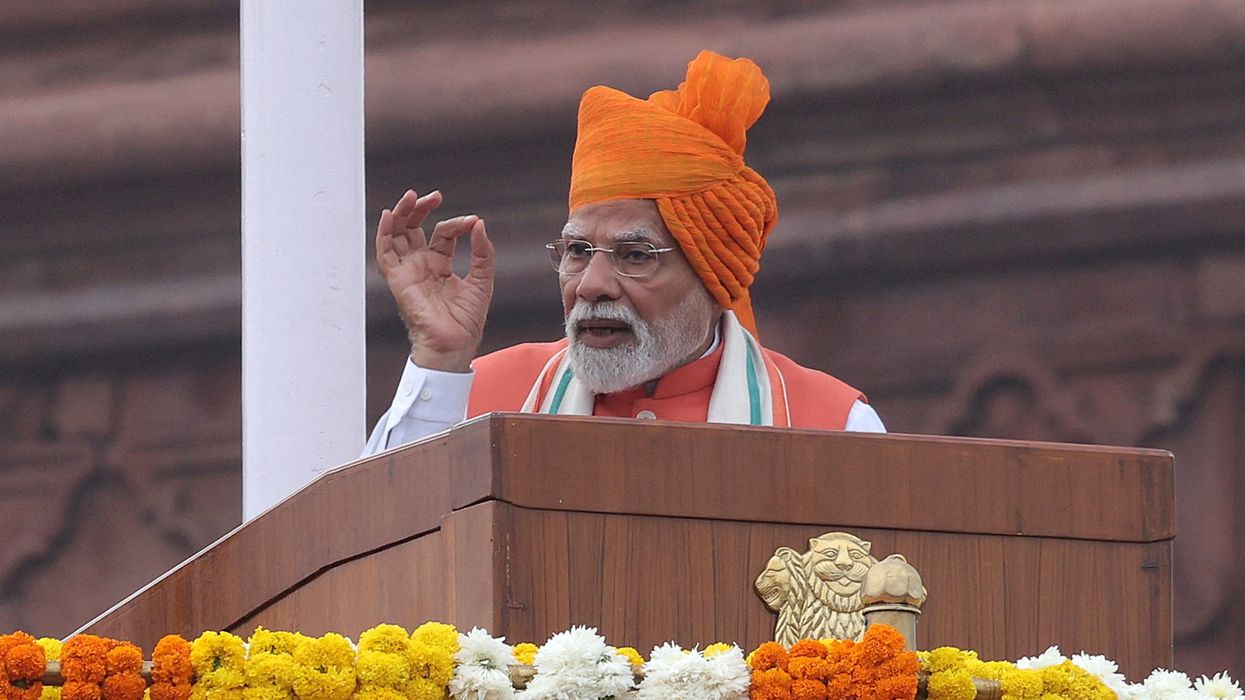INDIAN prime minister Narendra Modi on Friday (15 August) said India will focus on achieving self-reliance in energy and defence, vowing to protect the country’s interests “like a wall”.
Delivering his Independence Day address from the Red Fort in Delhi, Modi spoke as India faces pressure from the United States over crude oil imports from Russia and the threat of higher tariffs.
"Self-reliance is the foundation of developed India," he said after a military flypast showered flower petals on the crowd. "Freedom becomes meaningless if someone becomes too dependent on others."
The US has said it will raise import tariffs on India from 25 per cent to 50 per cent by August 27 if New Delhi does not change crude suppliers. Ties between the two countries have been strained by Washington’s call for India to stop buying Russian oil, a key source of revenue for Moscow during the Ukraine conflict.
India has said it “stands ready” to support efforts to end the Ukraine war and backs a summit between US President Donald Trump and Russian President Vladimir Putin in Alaska on Friday.
"We know that we remain dependent on many countries to meet our energy needs," Modi said. "But to build a truly self-reliant India, we must achieve energy independence."
US secretary of state Marco Rubio, in a message on India’s Independence Day, called relations between the two countries “consequential and far-reaching” and said both sides aim to “ensure a brighter future”.
Launch of ‘Mission Sudarshan Chakra’
Modi announced the launch of “Mission Sudarshan Chakra” to develop an indigenous air-defence system to protect vital installations and respond to any enemy threat. He did not elaborate on the system, but urged scientists and engineers to develop fighter jet engines, semiconductor chips and other military technologies within the country.
"We will have India-made semiconductor chips in the market by the year's end," he said, adding that India was also working on building a space station and a “defence shield” in the next decade.
Modi linked the defence mission to Krishna’s Sudarshan Chakra, saying it reflects how India draws on its cultural heritage for modern innovations. He said the mission would ensure rapid and precise responses to threats and strengthen offensive capabilities.
Pakistan threat and water treaty suspension
The announcement came days after Pakistan Army chief Field Marshal Asim Munir was reported to have hinted at targeting Indian assets along the border in the event of a conflict.
Modi also referred to the four-day conflict with Pakistan in May, saying, "India will give a befitting reply to any other misadventure by the enemy," and reiterated India’s suspension of its cross-border water sharing treaty with Pakistan.
"India has decided that blood and water will not flow together," he added.
Push for domestic jet engine production
Modi urged young innovators to develop jet engines domestically. The call comes amid delays in a proposed deal between Hindustan Aeronautics Limited (HAL) and US firm GE Aerospace for co-producing jet engines for India’s next-generation combat aircraft.
India’s earlier effort to develop an indigenous engine, the Kaveri project launched in 1989 for the Light Combat Aircraft programme, has yet to be completed despite over Rs 2,000 crore spent on it.
Indigenous weapons and Operation Sindoor
Modi also hailed Operation Sindoor, launched after the April 22 Pahalgam attack, as proof of India’s capacity to act independently using indigenous weapons.
"When economic selfishness is rising day by day... we must not just sit and worry about the crisis but instead focus on our strengths," he said.
(With inputs from agencies)





